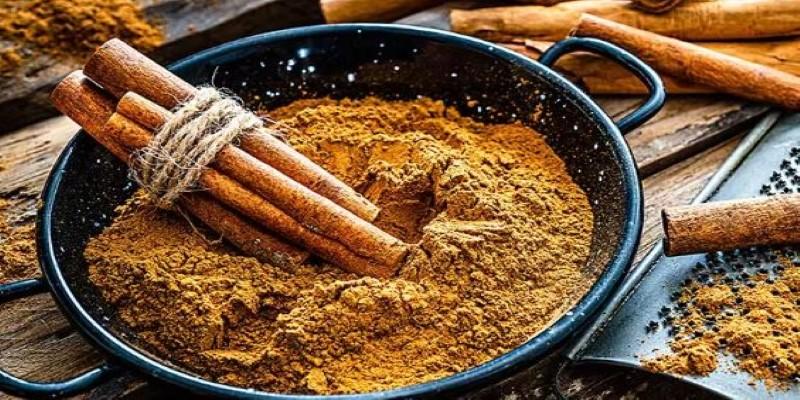Cinnamon has been valued for centuries not only as a spice that adds depth to food but also as a natural remedy in many traditional healing practices. From ancient Egypt to Ayurvedic medicine, it has carried a reputation for supporting overall wellness.
Today, research continues to explore the ways this familiar kitchen ingredient may help the body, from balancing blood sugar to fighting inflammation. While it should not be seen as a cure-all, incorporating cinnamon into meals in moderate amounts can offer health advantages that are both practical and enjoyable.
One of the most studied benefits of cinnamon is its ability to support balanced blood sugar levels. Compounds in the spice may mimic the effects of insulin, helping glucose move into cells more effectively. This action reduces the sharp spikes in blood sugar that often follow meals.
For people managing type 2 diabetes or prediabetes, cinnamon may serve as a supportive dietary tool, although it should never replace prescribed medication. Even for individuals without blood sugar concerns, stable glucose levels can mean steadier energy throughout the day and fewer cravings between meals.
Chronic inflammation has been linked to numerous conditions, including arthritis, heart disease, and digestive issues. Cinnamon contains antioxidants known as polyphenols, which may help reduce inflammation in the body. Unlike short-term inflammation, which is part of the body's natural healing response, long-term low-grade inflammation can be harmful over time.

By including cinnamon regularly in food, one may support the body's defenses against oxidative stress and reduce the impact of inflammation. These protective effects are subtle, but when combined with a balanced lifestyle, they contribute to long-term health.
Cinnamon has been associated with improvements in cholesterol and blood pressure, two key factors in cardiovascular wellness. Some studies suggest that cinnamon can help lower levels of LDL cholesterol while raising HDL, often called the “good” cholesterol. Better cholesterol balance reduces strain on blood vessels and decreases the risk of plaque buildup.
In addition, cinnamon’s natural compounds may support improved circulation by relaxing blood vessels, which helps blood flow more smoothly. While the impact is not dramatic on its own, adding cinnamon to a diet that is rich in fruits, vegetables, and whole grains may benefit heart health over time.
Cinnamon has long been used in traditional remedies to ease digestive discomfort. Its warming quality is thought to help with indigestion, bloating, and nausea. Modern studies suggest that cinnamon may also play a role in reducing the growth of certain bacteria in the gut, which supports better digestive balance.
A small amount of cinnamon in tea or sprinkled on food may soothe an unsettled stomach and help with mild digestive issues. While not a substitute for medical care in cases of persistent problems, cinnamon’s natural properties make it a gentle aid for everyday stomach comfort.
Another well-documented feature of cinnamon is its ability to fight harmful microbes. Essential oils derived from cinnamon bark contain cinnamaldehyde, a compound shown to have antibacterial and antifungal effects. These properties can help slow the growth of bacteria that cause food spoilage, which explains why cinnamon has often been used in food preservation.
In the body, its antimicrobial action may contribute to fighting common infections or protecting oral health. Some natural mouthwashes include cinnamon for this reason, as it helps freshen breath while reducing unwanted bacteria.
Research into cinnamon’s effect on the brain is still developing, but early findings suggest it may play a role in protecting memory and improving cognitive performance. Compounds in cinnamon appear to help neurons communicate more effectively, which could support brain function over time.
Some animal studies point to cinnamon’s potential in slowing age-related cognitive decline, though human research is still limited. Even so, the idea that such a common spice could support mental clarity has gained interest, especially as people look for natural ways to maintain sharpness as they age.
Though cinnamon is not a weight-loss miracle, it may assist with weight management in indirect ways. By helping regulate blood sugar, it can reduce sudden hunger cravings and make it easier to stick to balanced eating patterns.

Cinnamon’s slight effect on metabolism may also contribute to improved calorie use. When combined with exercise and a healthy diet, cinnamon may make it easier for individuals to control their appetite and maintain steady energy, both of which are helpful in managing weight over the long term.
Cinnamon’s antibacterial and anti-inflammatory properties extend to skin care as well. It has been used in traditional remedies for acne, rashes, and minor infections. While applying cinnamon directly to skin can sometimes cause irritation, when carefully mixed into natural treatments like honey masks, it may help reduce blemishes and support healing. Internally, the antioxidants found in cinnamon also contribute to healthier skin by reducing damage from free radicals, which play a role in premature aging.
While cinnamon offers many benefits, it is important to remember that not all cinnamon is the same. Cassia cinnamon, the most common variety found in grocery stores, contains higher levels of coumarin, a compound that can be harmful in large amounts. Ceylon cinnamon, often called “true” cinnamon, contains much less coumarin and may be a safer option for frequent use.
For most people, adding half a teaspoon to one teaspoon daily is considered safe. As with any dietary addition, it is best to keep moderation in mind and consult a healthcare professional if taking medications, particularly for blood sugar or heart conditions.
Cinnamon’s value reaches far beyond its warm flavor in baked goods and teas. This spice has been tied to supporting blood sugar balance, reducing inflammation, aiding digestion, and even protecting the heart and brain. Its antimicrobial qualities add another layer of benefit, while its potential for assisting with weight control and skin health makes it versatile in everyday wellness. Although it should not replace medical treatments, cinnamon deserves recognition as a simple and natural addition to a balanced lifestyle. When chosen wisely and used in moderation, it provides a blend of flavor and health that stands the test of time.
 TOP
TOP
Discover the key differences between Pilates and Yoga to choose the best path for your wellness.
 TOP
TOP
Learn the hidden risks of silent heart disease and how to protect your heart health.
 TOP
TOP
Optimize cycling comfort and performance with expert foot care and proper shoe choices.
 TOP
TOP
Discover the top 5 travel goals to achieve in 2025 and ignite your wanderlust with must-visit destinations and unforgettable experiences worldwide.
 TOP
TOP
Discover Paris beyond the usual landmarks with unique attractions and hidden gems that reveal the city's authentic charm.
 TOP
TOP
Oman’s Grand Canyon, a breathtaking destination offering stunning views, cultural insights, and adventurous hiking trails.
 TOP
TOP
How Macumba blends ancient traditions and innovation at La Route du Rock, offering transformative musical experiences that unite and inspire.
 TOP
TOP
Learn key facts about pediatric craniofacial surgery, common conditions, procedures, recovery, and emotional support that improve children’s health outcomes.
 TOP
TOP
Explore how eczema increases the risk of asthma and allergies, key risk factors, immune dysfunction, and management strategies for better health.
 TOP
TOP
Oman’s breathtaking coastal hiking trails, blending stunning nature and rich culture. Plan your perfect adventure today!
 TOP
TOP
Learn what a promissory note in real estate is, how it works, its importance, and how it differs from a mortgage in detail here
 TOP
TOP
Discover how hormones affect acne, dryness, and skin health, and learn practical tips to restore balance naturally.